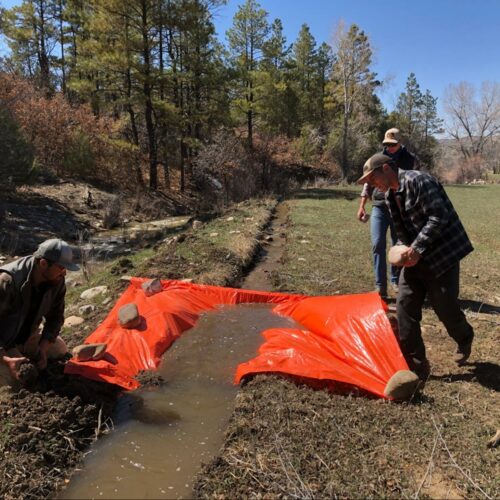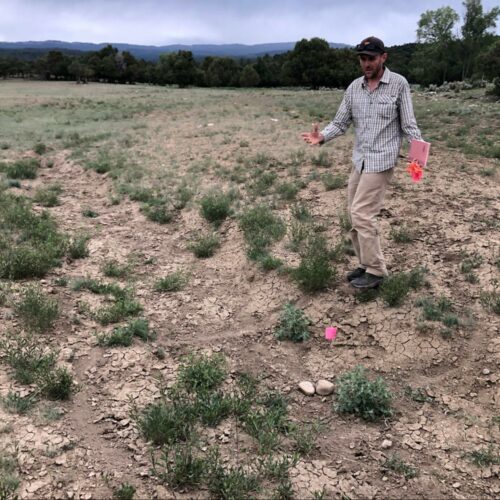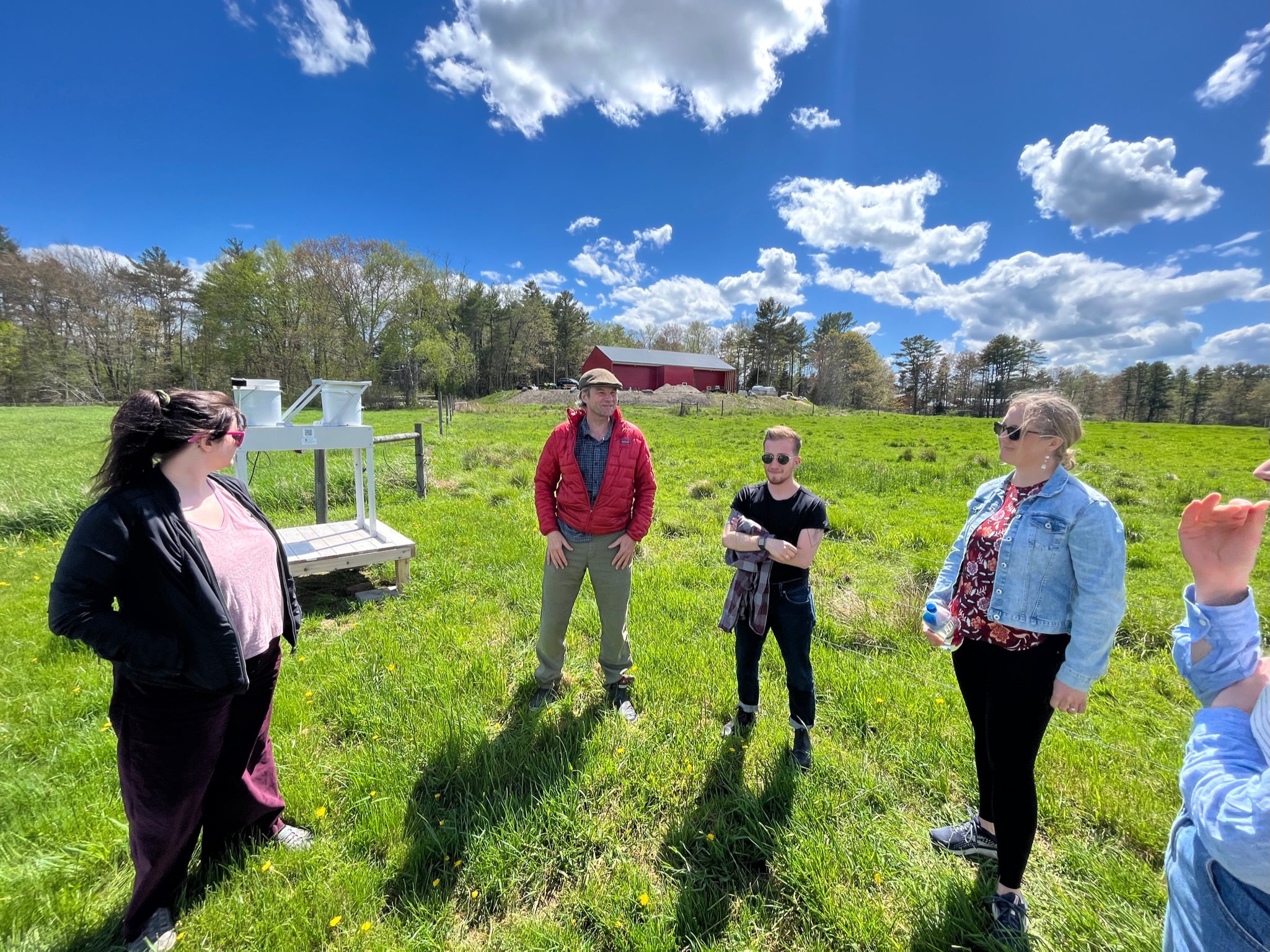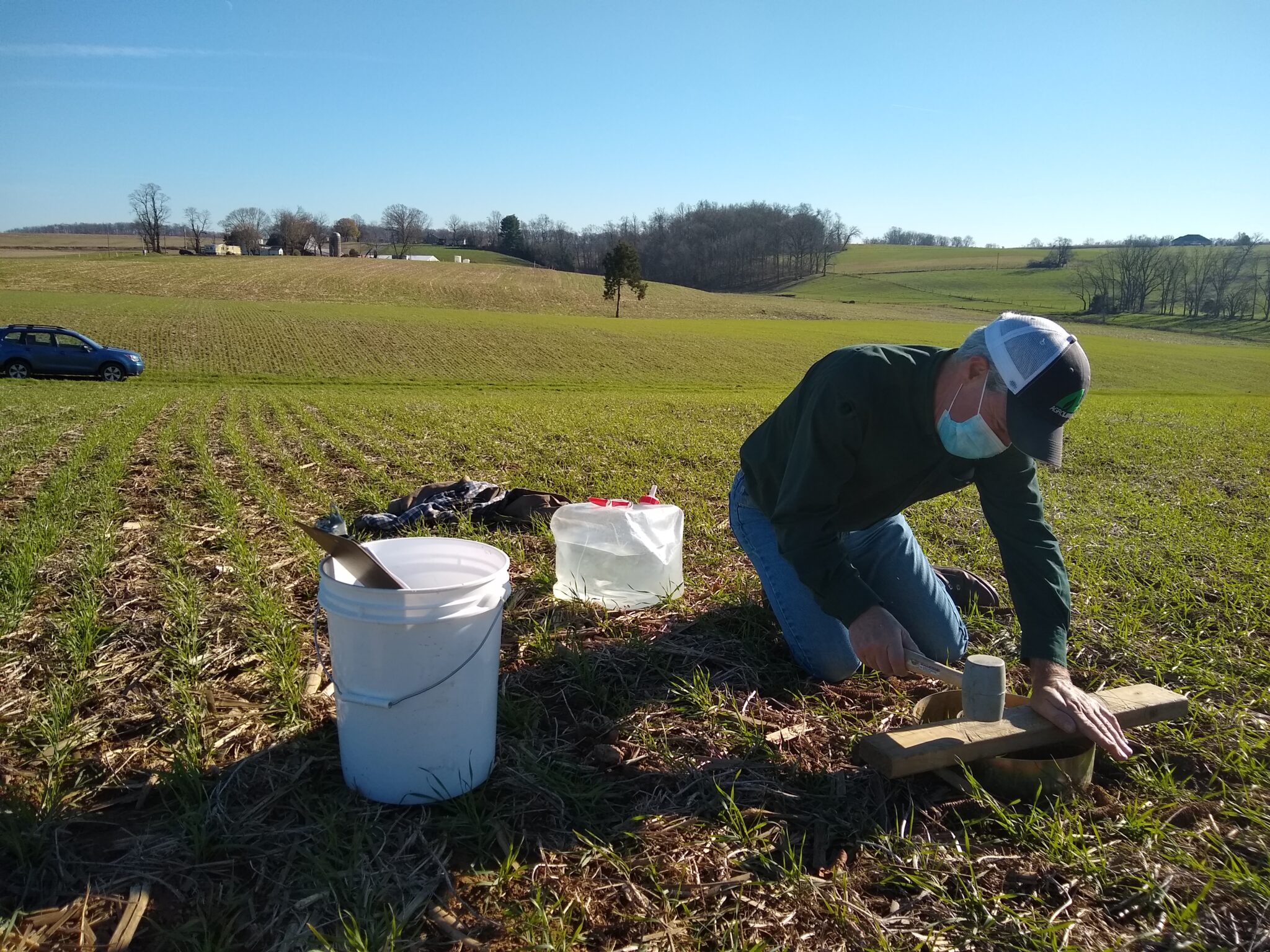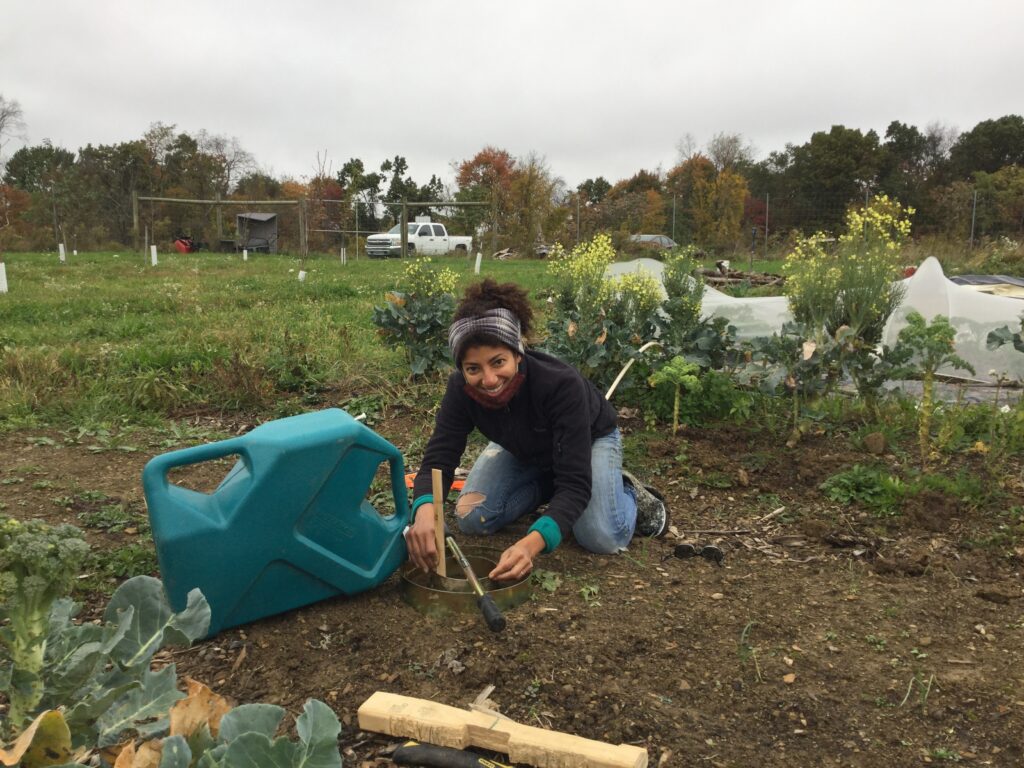One of two partnerships in this year’s OpenTEAM Fellows Program, a Fellow will share an appointment with both Point Blue Conservation Science and Quivira Coalition who have joined forces to work closely with ranchers in California and New Mexico to support soil health stewardship through technology development and assistance. Using OpenTEAM tools, the Fellow will help to advance the organizations’ collaborative and complementary initiatives around data collection and management.
“We are so excited to explore how we promote monitoring to build and normalize evaluation and iterative improvement through this Fellows Program,” says Eva Sticker, Carbon Ranch Director at Quivira Coalition.
Quivira Coalition, based in Santa Fe, New Mexico, supports farmers and ranchers by fostering ecological, economic, and social health through education, innovation, and collaboration. They interact with hundreds of producers through their Education Programs and Carbon Ranch Initiative and more broadly across the Intermountain West through their Regenerate Conference and New Agrarian Program. Building soil health, biodiversity, and resilience on western working landscapes for over 25 years, they are excited to partner with Point Blue Conservation Science on implementing their Range-C Pilot Program in New Mexico.
Point Blue Conservation Science, often referred to as Point Blue, conducts science and research on both natural and working lands (farms and ranches). . A growing and internationally renowned nonprofit with over 160 staff and scientists, Point Blue has been working from California to Antarctica to increase the pace, scale, and impact of climate-smart conservation since 1965. Their Working Lands Group staff and scientists conduct and translate rigorous science and work with land stewards and other partners to ensure agricultural landscapes provide ecosystem services that support the needs of people and wildlife, such as through their Range-C pilot program.
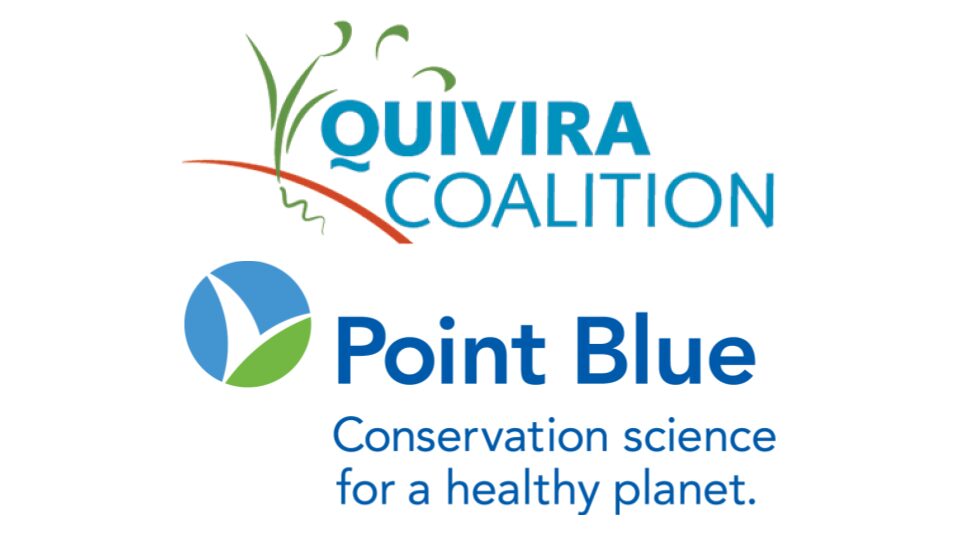
This new Range-C pilot program will be facilitating carbon monitoring using protocols that were created collaboratively last year with dozens of scientists and practitioners, including OpenTEAM’s Field Methods Working Group. Using OpenTEAM tools and related technology, Point Blue will work with Quivira Coalition’s Carbon Ranch Initiative to onboard farms and ranches in California and New Mexico to test these protocols while onboarding land stewards to the OpenTEAM technology ecosystem. By partnering with Quivira Coalition, Point Blue can expand their reach to explore different ecological, cultural, and agricultural circumstances through the Carbon Ranch Initiative.
“If the protocols can work in these two completely different places, it’s probably a pretty robust system,” says Stricker.
The Carbon Ranch Initiative at Quivira Coalition is working with farms and ranches across New Mexico to prioritize management aligned with healthy soil principles and find support to implement these priorities using OpenTEAM tools and platforms, making it the perfect place to implement and test these new carbon monitoring protocols.
“We are building a culture of using information to iteratively improve and make better decisions. That information needs to account for social, cultural and economic complications and complexities and, more specifically, building trust with producers in this work. The onus is always on us to build that trust,” said Stricker, “The fellowship is a cool way to bring Point Blue, Quivira Coalition, and all of the OpenTEAM Hubs together on that,” she continued.
Additionally, through Quivira Coalition’s in-field research, An OpenTEAM fellow will be able to make more efficient and robust data collection of soil health characteristics using OpenTEAM tools and platforms. Not only will the Fellow train land stewards in using these tools, but they will train staff to implement these tools and share their learnings with the farmers they work with.
The Fellow will also learn how they fit into the agricultural landscape through various trainings and professional development opportunities.
“We love that this fellowship is investing in these Fellows. They’re not just there to crank out a job. They’re getting really important training at the beginning and then they’re getting support throughout their fellowship,” says Stricker.
They are especially excited to be working with OpenTEAM to catalyze this partnership to strengthen collaborations between agricultural and technology communities, cultivate trust, support data sovereignty, and open new markets and opportunities for all farmers, ranchers and land stewards.
“Particularly for producers, building trust between technical support folks and producers, including traditionally underserved folks, is the burden we have. And we can lose trust for generations, if we do something wrong,” says Stricker.
“We need to be training people in information management, from the technical support side and we also need to be educating producers about how their information is used and how they can control it,” continued Stricker. Through OpenTEAM, collaborators can develop dialogue and tools to make sure legal standards, ethical standards, and other standards or principles are being met.
At OpenTEAM, we are thrilled to see organizations within our community partnering together to implement new protocols and establish feedback systems using OpenTEAM tools, which can connect land stewards in their networks with additional opportunities and technologies. By taking the extra step to ensure access to opportunities for land stewards without compromising control over the data, Point Blue and Quivira Coalition are equipping the next generation of food system leaders with the skills necessary to implement regenerative agriculture and transition technology in favor of land stewards’ needs.


